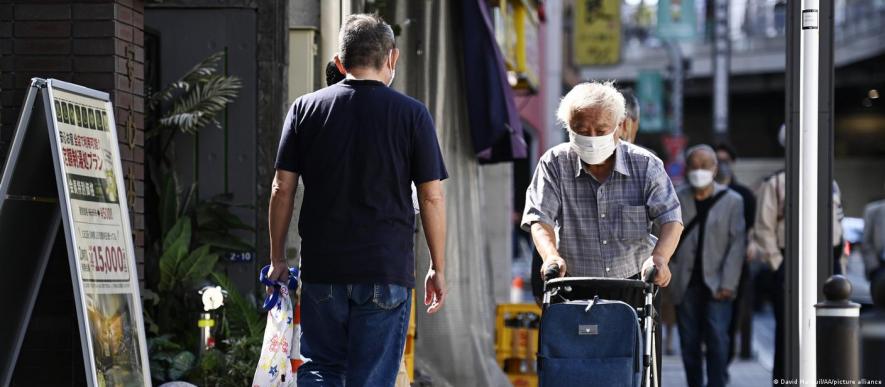Japan's Population Problem Forces Changes to Social Security

Japan's government is planning dramatic changes to the national pension scheme and healthcare payments as supporting the country's aging population strains public finances.
Advances in healthcare are enabling more Japanese to live longer than ever before, with government statistics released in August showing that a Japanese woman can expect to live to the age of 87 and a man to reach 81-years old.
At the same time, however, the number of births in 2021 fell to a post-World War II record low of just over 811,000. The number of working age people is also shrinking as more people enter retirement.
In response, the Ministry of Health, Labor and Welfare is expected to propose significant changes to the pension scheme that all Japanese are required to contribute to, mandating an extension to the period that people have to pay premiums from the present 40 years to 45 years.
The ministry also intends to increase contributions to the national healthcare system paid by older citizens. Additional fees for medical treatment are also expected to be increased.
A final decision on the proposals is expected in 2024.
Japan's cherished health care system
"The fairness of access to healthcare in Japan is the best in the world because everyone from the very rich to the very poor has access to health services," said Haruko Noguchi, a specialist in the economics of healthcare at Waesda University in Tokyo.
"But I also believe this is not sustainable," she told DW. "Right now, the situation can be managed, but by 2040, which is very soon, the ratio of old people of 65 and older will have increased sharply," she added.
"The 'baby boomers' are reaching retirement age and I do not think the system we have at the moment for funding health care is sustainable," she said.
However, any increase in pension and healthcare payments is unlikely to be welcomed by a public already feeling the pinch associated with the lingering economic aftermath of the coronavirus pandemic and the ongoing global effects of the Ukraine war.
Politicians in the ruling party are also fearful that the electorate will turn on them and opposition members could use the payment increases as a political weapon.
"The government is thinking very hard about cost-containment, but it is very difficult for people to accept that and understand why they will have to pay more in the future," said Noguchi.
"It is very difficult for them to move from having the best healthcare in the world to anything that is less than that," she added.
Heavy resistance to change
Japan's healthcare system provides care regardless of age, gender, wealth, and it does that with a fairly high level of access and standard of care, said Hans Klemm, Japan representative of the Washington-based Pharmaceutical Research and Manufacturers of America.
The coronavirus pandemic proved the robustness of Japan's healthcare system, as Japan had one of the lowest COVID-19 death rates in the world, he added.

Japan's public health care system provides good coverage, but there are less workers to pay for it
However, without changes, Japan runs the risk that paying for its health and welfare system will become unsustainable.
"I think part of the problem is that there has been a great deal of pride in Japan's healthcare system, but that they are stuck in a vice," Klemm told DW.
On one hand, Japan's government has limited resources to combat a worrying fiscal deficit, and it faces other pressing priorities, such as national security, Klemm pointed out.
"There is concern about the fiscal discipline being applied" that limits the amount of healthcare, including innovative drugs, that are available to patients in Japan, he said.
Lawmakers in Tokyo are also aware that time is not on their side and that drastic decisions need to be taken across all government spending.
As of June, the Japanese public debt was estimated to be $8.7 trillion (€8.72 trillion), or an eye-watering 266% of GDP, the highest rate of any developed nation in the world.
Edited by: Wesley Rahn
Get the latest reports & analysis with people's perspective on Protests, movements & deep analytical videos, discussions of the current affairs in your Telegram app. Subscribe to NewsClick's Telegram channel & get Real-Time updates on stories, as they get published on our website.
























